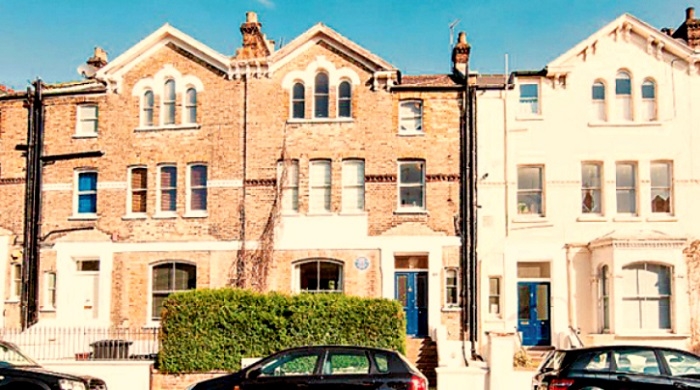Dr Ambedkar’s struggle for equality, constitutionalism and fraternity made him a national icon : Ram Nath Kovind
Total Views |
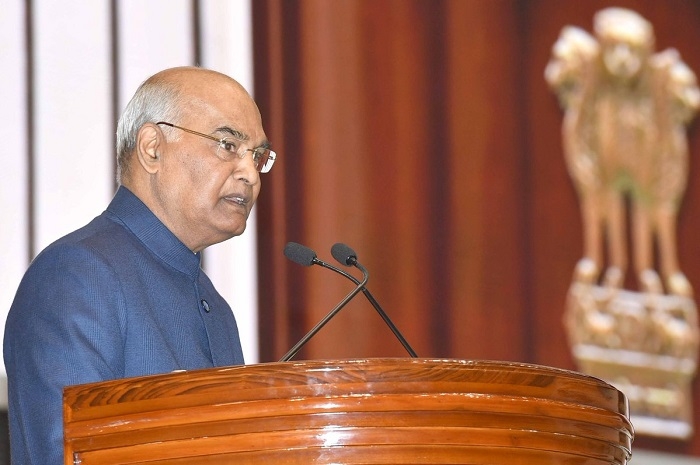
New Delhi, November 30: President Ram Nath Kovind inaugurated the 2nd International Ambedkar Conclave in New Delhi today as part of the commemoration of Constitution Day. The Indian Constitution day is celebrated on 26th of November every year. However the present government has undertaken campaigns for the honor of Dr. Ambedkar and for promoting his name and commendable work. The first international conclave was inaugurated in Delhi exactly a year ago by Kovind on 27th of November, 2017.
“The Government of India classified the birthplace of Dr Babasaheb Ambedkar in Mhow, the Deeksha bhoomi in Nagpur, the Parinarvana temple in Delhi, Chaitya bhoomi in Mumbai and 'Ambedkar Memorial Homes' in London as pilgrimage sites. ‘Ambedkar International Center' has been set up in Delhi”, tweeted Ram Nath Koind, the President of India
“In the year 1942, in a conference organized under the leadership of Babasaheb, there were 25,000 women in 75,000 participants. The effective example of women's involvement by Babasaheb was to show that it is the responsibility of the entire society and the country”, said Ram Nath Kovind
“Dr Ambedkar’s long struggle for equality, constitutionalism and fraternity established him as a national icon. In order to give a high priority to the inclusive development and upliftment of the disadvantaged sections, representatives of the Central Government are eligible for congratulations”, he added while addressing to the delegates present on the ocassion.
Dr. Babasaheb Ambedkar, widely known as the ‘Father of Indian Constitution’ was an Indian jurist, economist, politician and social reformer who inspired the Dalit Buddhist movement and campaigned against social discrimination towards the untouchables, while also supporting the rights of women and labour.
Short factsheet about the places in connection to Dr. Babasaheb Ambedkar, declared by the Indian Government as pilgrimage sites :
Mhow : Birth place of Dr. Babasaheb Ambedkar :
Dr. Ambedkar Nagar, formerly and commonly known as Mhow, is a cantonment in the Indore district in Madhya Pradesh state of India. Some articles in popular literature state that 'MHOW' stands for Military Headquarters Of War. However, this is a backronym, and there is no proof to support the theory that the name of the village comes from the acronym. In 2003, the town was renamed Dr. Ambedkar Nagar in honour of B. R. Ambedkar, who was born here.
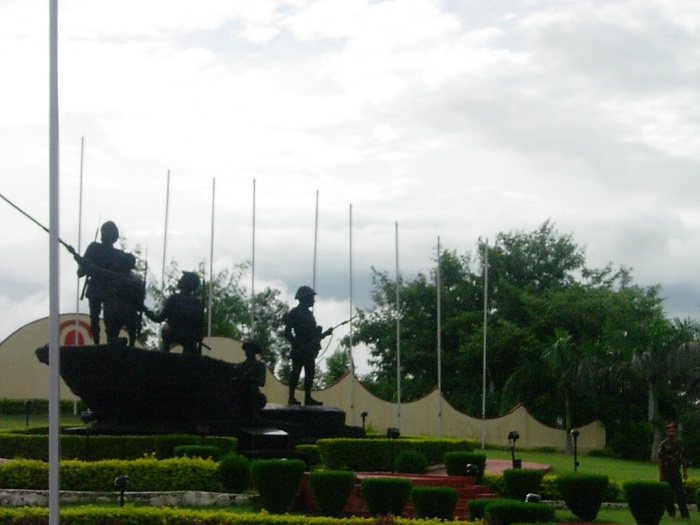
Deekshabhoomi, Nagpur :
Deekshabhoomi a place in Nagpur, Maharashtra, is a location regarded as a pilgrimage center of Buddhism in India. Deekshabhoomi is a sacred monument of Navayana Buddhism located where the architect of the Indian Constitution, B. R. Ambedkar, converted to Buddhism with approximately 600,000 followers on Ashok Vijaya Dashami on 14 October 1956. This religious mass conversion at one place was the first ever of its kind in history. Deekshabhoomi is one of two places of considered to be of great importance in the life of Ambedkar, the other being Chaitya Bhoomi in Mumbai.
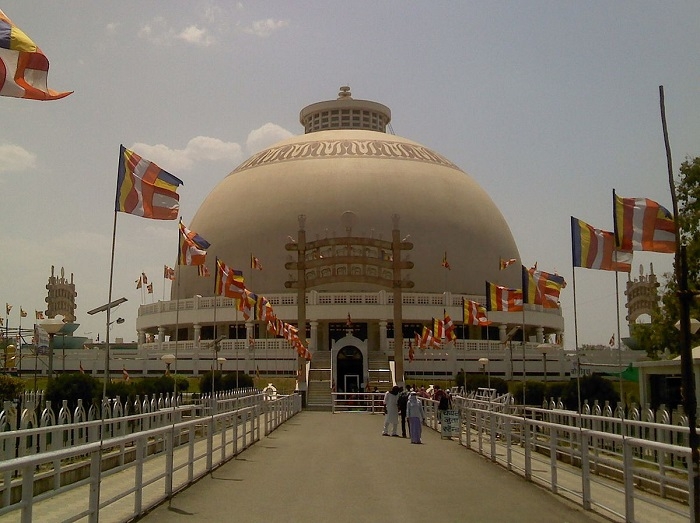
Chaitya Bhoomi, Mumbai :
Chaitya Bhoomi is a memorial to Ambedkar, the chief architect of the Indian Constitution. Chaitya Bhoomi was earlier known as Dadar Chowpatty. It was renamed as Chaitya Bhoomi, Ambedkar being cremated there after his death on 6 December 1956. Chaitya Bhoomi is a revered place of pilgrimage for all Ambedkarites and Buddhists in the World.
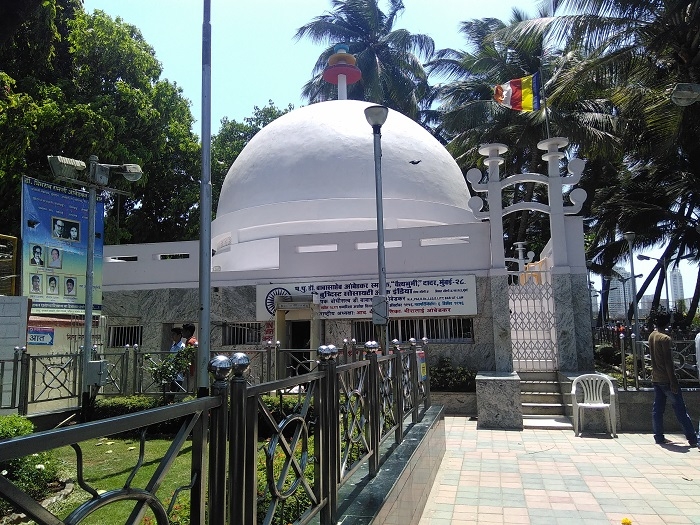
Parinirvana temple :
Parinirvana temple in Kushinagar district of Uttar Pradesh is an important Buddhist pilgrimage site, where Buddhists believe Gautama Buddha attained Parinirvana after his death. It is an international Buddhist pilgrimage centre. The followers of Buddhism, especially from Asian countries, wish to visit this place at least once in their lifetime.
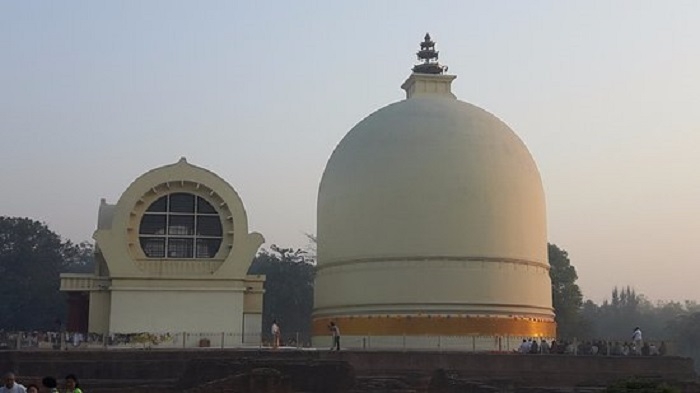
Ambedkar Memorial Homes, London :
'Ambedkar Memorial Homes' in London is the place where Dr Babasaheb Ambedkar stayed for the educational purposes during 1921-22. The Government of Maharashtra, in 2015 purchased the three storied building for Rs.34.5 crores. The house at 10 King Henry’s road in London, was later developed into the international memorial for the Indian Constitution. Ambedkar was a prolific student earning doctorates in economics from both Columbia University and the London School of Economics and gained a reputation as a scholar for his research in law, economics, and political science.
